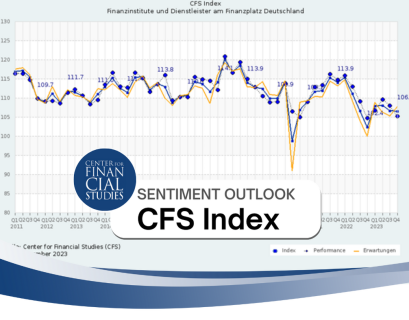A European consortium of universities and FinTechs is working to promote knowledge-sharing between banks, FinTechs, regulators, and financial supervisors on the risk management of financial technologies. Since 2019, the financial technology company Firamis GmbH has been part of this consortium. In an interview, Dr. Jochen Papenbrock, CEO and founder of Firamis, discusses the role of Artificial Intelligence (AI) in managing risks of financial technologies and its significance for the Financial Centre Frankfurt.

What are the risks of FinTech’s increasing importance for the financial sector?
We understand the term FinTech to comprise of much more than start-ups using financial technologies such as Big Data Analytics, AI, and Blockchain. Traditional banks and insurers use new financial technologies as well and might face similar challenges as start-ups do, especially with regards to risk management. In addition, banks and FinTech start-ups are increasingly cooperating – more outsourcing relationships are emerging as a result of the continuous break-up of value chains. At the same time, many banks are invested in start-ups. As systems, data, and processes become increasingly intertwined, banks are equally affected by the risks of financial technologies. Therefore, we are currently observing a growing need for discussion between the industry, regulators, and supervisory authorities.
Against this background, Fintech Risk Management and model/data governance are of particular importance. While traditional banks most certainly have gained more experience in regulatory and supervisory practice, it is new territory for many FinTech start-ups.
Can you explain this in more detail?
Complex, non-transparent, and biased models and data pose a problem to new financial technologies. Several supervisory bodies have decided to reject black box models – i.e. non-transparent machine learning approaches such as multi-layered artificial neural networks (deep learning) – in production-critical processes.
We are currently working on these and other topics as part of a larger EU project on Fintech Risk Management. The exchange of knowledge between banks, FinTechs and regulators takes place throughout Europe over a period of two years. Standards are being developed that ensure the use of financial technologies in secure financial products and enable FinTech business models in Europe to be scaled as efficiently as possible. Our Fintech-AI-B2B-start-up Firamis is part of the consortium and member of the Executive Board. We are working to build an EU Research Sandbox and establish requirements for a Trustworthy AI. The EU also runs several programs on related topics.
Furthermore, the increasing use of financial technology may create systematic risks. If several FinTechs use the same technology, they will react quite similarly to certain market phases. In addition, the risks of a domino effect are rising due to the increased interconnectedness of value chains. The supervisory focus will continue to shift from individual companies to the entire value chain.
What regulatory framework is needed to keep risks under control?
We believe that risks can be managed by focusing on model validation as well as the entire model risk management process and data/model governance. Black box models will have a hard time with more intensive regulatory reviews by national and international supervisory authorities. On the other hand, the use of financial technologies will continue to increase due to competitive pressure. So the question of which modification of the technology is needed to meet the requirements remains.
Are there solutions to make these approaches more accessible and understandable for regulators and supervisors?
XAI (Explainable AI or Interpretable AI) is one of those approaches. New approaches, technologies, and data visualization are used to make the models more explainable. XAI is also one of the core competencies of our start-up Firamis, and we are currently expanding our resources in response to those developments. AI thus is implemented to, for example, explain black box models automatically. This is especially important for customers who want to know, for example, why they received a certain credit score or why they are assigned a certain risk profile by their Robo Advisor and how they can improve.
The question of how these regulatory controls should be implemented in practice is exciting. Several models are conceivable, ranging from independent control by supervisors to outsourcing to third parties. We will observe a certain degree of standardisation and also something like a technical inspection for financial algorithms.
What does the dynamic development of AI / Machine Learning mean for the FinTech industry in Frankfurt?
Current developments in financial technologies show that Financial Centres compete with each other. The game is changing due to disruption. The Financial Centre Frankfurt has great chances to become the European capital of financial technologies. (Central) banks, technology companies, FinTech ecosystems, supervisors, and regulators are already presented. AI may hold more potential for the Financial Centre Frankfurt than Brexit and Blockchain do.
So there’s still a lot to do. In 2017, we launched the annual Summit on AI, Big Data and Network Analysis in Financial Services with other partners. In addition, we founded the association AI in Financial Services e.V., in which anyone can become a member who is interested in advancing AI.





